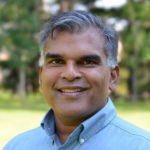What if Christians in America have lost the war against cultural changes they feel do not reflect their biblical standards?
They might look to Christians in Canada who realized a decade ago that they lost the culture war there and just got down to the business of being the church.
Bill Taylor, executive director since 2008 of the Evangelical Free Church of Canada, said during a small gathering of church services providers in Columbia, S.C., that they realized their “war” was over when the Canadian legislative approved same-sex marriage in 2005.
When evangelical Stephen Harper successfully ran for the office of prime minister in 2006, opponents — citing his religious beliefs — declared “abortion would be repealed, tanks will be rolling through the streets and there will be martial law,” according to Taylor.
As recently as this month, Paul Dufour, a science policy analyst at the University of Ottawa, referred to Harper as “the dark prince” when current Prime Minister Trudeau restored funding Harper had cut for research.
Analysis of opposing sides in the supposed “war” against cultural change is virtually schizophrenic. In the past months stories have run in prominent American publications headlined, “Are Liberals Losing the Culture War?” followed by, “Are Christians Losing the Culture War?” and then “Why America is losing the Culture War.”
“It’s hard to war against a people and win a people at the same time,” said Ed Stetzer, director of the Billy Graham Center for Evangelism, who is married to a Canadian.
Stetzer, whose career among Southern Baptists has morphed into national leadership in Christian trend analysis, said ultimately Harper was not considered a threat to Canadian’s liberal culture because evangelicals in Canada were too small a number “to be a threat.”
In the United States, the culture wars still rage because evangelical Christians are a large enough force to make noise and resist change.
“It’s not good that nominal Christianity is dying away,” Stetzer said. But the “unintended benefit” is that a group that never was a real majority has now become “a convicted minority.”
“When church is on the margin,” he said, “it’s more likely to be on the mission.”
Rather than lamenting the loss of cultural privilege, the churches Taylor leads have concentrated on being messengers of the gospel and living life differently, rather than hoisting megaphones for a moral message.
“We don’t focus on fighting over moral issues,” he said. “We plant churches and try to share the gospel in relevant ways.”
So the Evangelical Free Church, with 135 congregations until 2010, has planted 30 new churches since then.
“Fighting the cultural wars was a losing battle and a distraction from our main calling,” Taylor said. “We don’t compromise on truth. We live differently from everybody else, but we don’t need to spend our time convincing other people to live like us.”
He said, for example, that same-sex couples should have the same civil rights as other citizens, although his Christian perspective disavows same gender marriages. Pastors in Canada are not required to perform marriages for same-sex couples.
“We live out a different moral calling, but we don’t expect unbelievers to live and act like believers,” Taylor said. “We just expect unbelievers to act like unbelievers and expect believers to act like believers.”
Sam Chaise, former executive director for Canadian Baptist Ministries, said members of the Evangelical Fellowship of Canada “don’t expect much receptivity” when lobbying for issues prompted by their religious convictions. That does not keep them from raising their voices around issues such as homelessness and affordable housing, creation care and a growing engagement with First Nations and Aboriginals.
He said those interests are not in conflict with the culture, but “are aligned with it.”
“We still hope to speak into issues in nuanced ways and to do so without assuming that others share similar religious convictions to us,” Chaise said.
Stetzer cautioned that church growth is not a natural result of shifting focus from culture wars. Many other denominations are not growing. He predicts another “season of soul searching” among American Christian voters following the Nov. 8 election.
Taylor likens the position of Christians in Canada to the first-century church, which “lived in a culture that held all kinds of different sexual values, abandoned babies on mountain sides, was a world of slavery and treated women badly.”
“The church just lived differently,” he said. “They treated slaves better than anyone else. They took in girls who had been mistreated. That’s the model. Live differently. Love each other. Share the gospel.
“I think we’ll be weird in the culture and that’s OK. As long as it’s a good weird, and attractive weird, that’s what we’re called to be.”
A bigger issue than no longer being a worthy adversary in a war to dictate cultural development, Taylor said, is that “culture thinks we’re irrelevant.”
“We have to be more than an hour and 15 minutes on Sunday morning,” he said. “We have to be loving communities, sharing the gospel and praying like the early church did. If we do that, I don’t think they’ll think we’re irrelevant anymore.”
“Most pastors and Christian leaders under 50 aren’t living with nostalgia, but with a proactive disposition towards engaging the mission reality as it exists,” Chaise said. “We are also learning how to simply be the Church and enter into local and larger conversations without needing to be in charge of the conversation and without needing to have everyone listen to us.”



